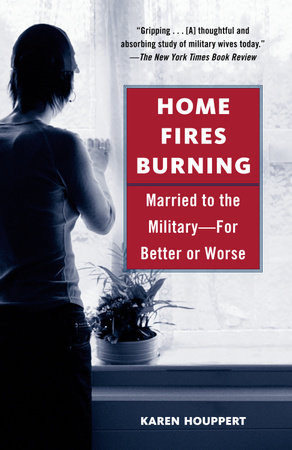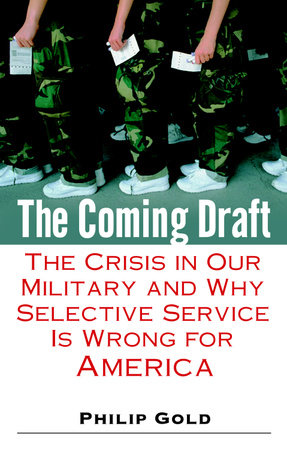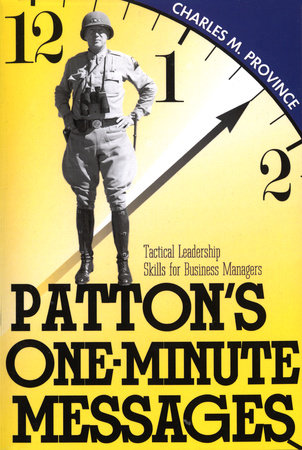Author Q&A
A Conversation with Karen Houppert
Q:What distinguishes HOME FIRES BURNING from other press coverage on the military?
Most current media coverage focuses on the military as a fighting force. I’m looking at the military as our nation’s largest employer–one that in wartime has increasing powers of persuasion.
HOME FIRES BURNING puts the military’s corporate culture under the microscope. With an annual budget of $371 billion (compared to Exxon Mobile’s $200 billion budget, or Walmart’s $227 billion), and 2 million employees (compared to Walmart’s 1.4 million or Exxon’s 97,000), the Department of Defense is the largest “company” in the United States.
In some ways, the military is a progressive company. It does better than Starbucks with employee benefits, for example. Though they probably wouldn’t put it this way themselves–the military is also a massive welfare state. Health care is free for the entire family; housing is free or subsidized; quality childcare is subsidized and affordable; mental health, financial, even some legal counseling is free. The military has bought an idea which has been a hard sell among other U.S. Corporations: A healthy, happy family makes for a more productive employee.
Q:Considering the many benefits provided to military families, why are so many wives reluctant to have their husbands reenlist?
Instead of simply providing services, the military has engaged in some social engineering to manipulate the beliefs and actions of military wives–an effort to secure their undying institutional loyalty. But their efforts are not working. A 2004 poll by the Kaiser Family Foundation, Harvard University, and the Washington Post found that 79 percent of military spouses say frustration with being in the army is high. Only 36 percent say they will encourage their spouse to reenlist.
The problems are myriad. Military wives are manipulated by the Department of Defense into making some of the same sacrifices of their personal liberties as their husbands, and yet garner none of the respect or pay they are accorded. And while the husband may be the one who enlists and swears loyalty to the institution, the wife becomes a de facto employee–or member of the “Army Family,” as it is more benignly described by DOD.
Q:How is the Army strong-arming wives?
With a hefty dose of old-fashioned paternalism and some fancy propaganda, the Army is struggling mightily to make wives “mission multipliers” (as they call them when they’re being cooperative), instead of “human dimension challenges” (as they’re dubbed in their more taxing moments). This well-orchestrated effort is called “Army Family Team Building.” Wives go to classes to learn all about the Army–why it does what it does, how she can help support her husband’s mission, how her husband’s mission is her own mission, and how to be a good army wife. The Army has stepped up its efforts to win the hearts and minds of wives–often in ways that undercut their own best interests.
Trying to create the same unit cohesion (or bonding) among wives that is critical to good soldiering on the battlefield, the Army has also devised Family Readiness Groups. What wives really wanted while their husbands were away fighting a war was a support group. What they got instead was more work. Typically headed by a unit’s commanding officer’s wife (who “volunteers”), these groups are charged with dispensing the latest information about deployments and redeployments, fundraising to cover costs of morale-boosting social events, organizing events that promote unit-cohesion among families, writing newsletters, serving as social workers or a referral agency for families in trouble, and helping to pass along Army family values and army culture to young wives. Attendance at these groups is very poor. Many wives prefer to pick their own friends, and resent the “morale building” tasks as busy work.
Some wives are expected to put in hundreds of unpaid hours a month to keep many of the posts’ vital programs up and running. The military sends a not-so-subtle message that if a wife truly supports her husband, she must support her husband’s unit, the larger military community, and her country. Volunteering at a bake sale is then cast as their patriotic duty. Thus many women shoulder a tremendously taxing volunteer load–all while their husbands are overseas and they are working and single-parenting.
Q:What happens if wives simply refuse to do all the volunteer work the Army requests?
Officially, nothing happens. Unofficially, wives say it’s another story. Though a lawsuit filed by a military wife in the 1980s forced the military to drop its policy of factoring in a wife’s volunteer contributions and social suitability when considering a soldier’s promotion, most officers’ wives believe it remains the unwritten addendum to employee evaluations. The military does little to counter this perception. And why should it?
Q:What kind of hardships does military life pose to a spouse who is trying work outside the home?
If you’re married to a soldier, it is assumed that your career will take a backseat to your husband’s–if you’re able to land a job at all. Consider that wives must move where and when the government tells them (every two years on average, for Army families), and each time they must give up their job and start from scratch in a new town. Each time a military family moves, the soldier’s wife loses weeks or even months of work as she hunts for a new job; most states don’t allow these wives to collect unemployment since they “voluntarily” relocated. They rarely stay in a place long enough to be promoted, to qualify for a 401(k), to build up a pension, or to climb career ladders.
And, while civilian wives average $15,800 a year, military wives average only $10,200 a year–with the biggest difference occurring among college-educated military wives, who made $116 less per week than their civilian counterparts. Military wives are also less likely to work outside the home, with only 49 percent of military wives who were high school graduates working outside the home, compared with 62 percent of civilian wives. Among military wives with a college degree 56 percent worked outside the home, while 70 percent of civilian wives do.
Q:When it comes to domestic violence rates, how does the military population compare to the civilian population?
The military has a dirty little secret: Its domestic violence rate is 3 to 5 times higher than the civilian rate. More concerned with bad press than with genuinely solving the problem, the military says one thing but does another when combating domestic violence in its ranks. For example, it sends those who commit domestic violence to Anger Management classes. In the civilian community these types of classes have been largely dismissed as useless. The problem isn’t really about managing anger, or handling stress. Julie Fulcher, Public Policy Director for the National Coalition Against Domestic Violence, put it this way: “Domestic violence is not something that happens because you’re feeling upset today. It’s about people feeling like they’re entitled to do this to their wives.” Fulcher adds, “The day you start seeing these guys go after their commanding officer because they’re pissed off and they just can’t control their anger, we’ll rethink our theory.”
Yet in the military, domestic violence continues to be dealt with as a communication issue. Instead of being sent to jail for their crime, perpetrators are sent to couples counseling.
Q:The military always proudly announces that it “takes care of its own.” If this is true, why are so many young enlisted families struggling to make ends meet?
The situation is dire. In 2003, 38 percent of army families qualified for federal poverty programs like food stamps, WIC (a program for poor pregnant or nursing women), or free school lunch vouchers. Consider that 54 percent of soldiers earn less than $2000 a month, that 75 percent of soldiers in the Army have kids, and that 88 percent of those kids are under age 5. That’s a lot of very young, very isolated, very poor families struggling to make ends meet. Only 9 percent of Army families describe themselves as “financially comfortable.” In fact, the Defense Department’s own studies show that 67 percent of junior enlisted soldiers report savings of less than $1000.
Q:How are military wives being proactive or working collectively to make changes?
Fortunately, military wives are a resourceful lot. Over the years they’ve kicked and screamed enough to force some changes, many within the last twenty years. The military now offers families some of the highest quality daycare in country–and it’s subsidized, so affordable. (Next, the Army needs to eliminate the waiting lists for this daycare and extend the hours to accommodate real work schedules.) Military wives have pushed hard to make the base schools for their kids equal or better than civilian schools.
Q:How do military wives support each other?
This is really the best thing about the military life–almost every woman I spoke to mentioned the emotional and practical support they get from other wives who are in the same boat. Because you move so often in the military, you have to make friends quickly. And because the husbands are gone so often, the wives come to rely on each other, creating a strong sense of community. If a young woman goes into the hospital to have a baby while her husband is deployed, you can bet other wives will offer to take care of her toddler, bring her dinner, or do her grocery shopping. Or just as likely, all of the above.
While she may not repay the women who helped her directly, years later you can be sure she’ll send her teenaged daughter across the street to baby-sit when another young wife is struggling alone with a newborn. That’s just the way it is. And no matter how thankful she might be, she’ll probably get the same kind of lackadaisical response that fighter pilots are notorious for: “No problem.”
Q:How did your personal experience growing up in the military lead to this book?
I’m an Air Force brat myself and I remember when my own father went to Vietnam in 1969, my mother belonged to a something called “The Waiting Wives Club.” She describes this support group as her “lifeline.” As the U.S. was gearing up to go into Iraq, I started thinking about all the women who were going to be left alone to work and bring up kids. I was curious to find out what the military was doing today to help wives cope while their husbands were away.
























